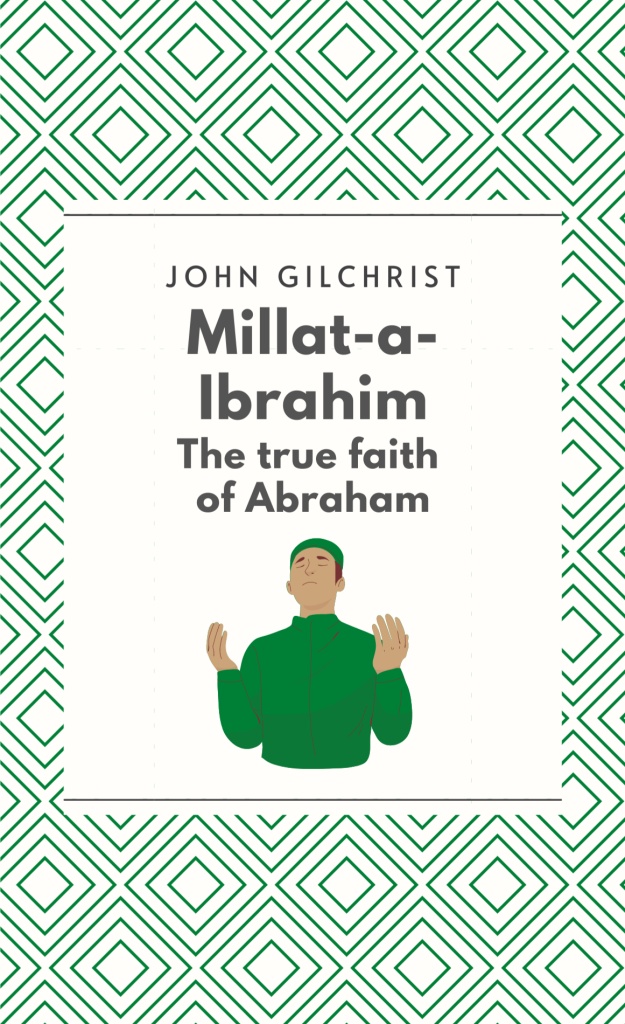Abraham's Contemplation of the Command
Millat-a-Ibrahim: The True Faith of Abraham


Chapters
« Ch. 6 - The Command to Sacrifice his Son
We have seen that Abraham reasoned very carefully about the promise that his wife would bear him a son and that he believed it would surely come to pass, not just because God has the power to do anything he chooses, but because he believed that God is so faithful that he will always fulfil his word. As Abraham himself said on another occasion, "Shall not the Judge of all the earth do right?" (Genesis 18:25). When the command came to sacrifice his son, therefore, Abraham did not suddenly lose heart and throw his hands in the air in confusion. No, he was a man of faith as the Bible and the Qur'an both testify, and at this point the genuineness of his faith was about to be proved in all its fullness.
Abraham considered none of the other three options we have mentioned with any degree of seriousness. He based his attitude on the same foundation which had seen him through all This previous tests. He believed that God is always faithful and, therefore, the promise that he would have children like the stars of the sky must surely be fulfilled. Although this promise appeared to be beyond fulfilment if his son was to be sacrificed, in the providence of God it must yet come to pass.
There was only one way that Abraham's son Isaac could beget offspring if he was to be sacrificed and that was by rising from the dead. Abraham concluded that this was the only way God's promise could be fulfilled and he reasoned that, if God could give him a son when it was naturally impossible to have one, then God could also raise him back to life from the ashes. We have already seen that he believed in God as he who "gives life to the dead and calls into existence things that do not exist" (Romans 4:17), and he therefore considered that if God could give life to a dead womb so that a child could be conceived by a woman who was ninety years old and who had always been barren, then he could also raise the sane child from the dead. The Qur'an itself also teaches that Abraham once prayed, "My Lord, show me how you give life to the dead" (Quran 2.260). The whole of Abraham's contemplation of the command to sacrifice his son is summed up in these words:
By faith Abraham, when he was tested, offered up Isaac, and he who had received the promises was ready to offer up his only son, of whom it was said, "Through Isaac shall your descendants be named". He considered that God was able to raise men even from the dead; hence, figuratively speaking, he did receive him back. Hebrews 11. 17-19.
Abraham believed that God would raise Isaac from the dead and, through this belief, he gained a remarkable understanding of God's real purpose behind all that was happening to him. He suddenly realised that it was a risen Isaac who would be the one through whom all his descendants would come. No wonder his son would become a blessing to his offspring and one through whom all the nations would be blessed. Abraham realised that, by conquering death, his son Isaac would fulfil God's promise that he would become a blessing to the world. In this spirit he went forward boldly with the sacrifice in the faith that God would fulfil his promise by raising Isaac from the dead.
We need to notice how often it is said of Abraham that he carefully considered all that God said to him. "He considered his own body ... he considered the barrenness of Sarah's womb ..." are the words describing his response to the promise that he would bear a son (Romans 4:19), and now we read, in response to the command to sacrifice, "He considered that God was able to raise men even from the dead ..." (Hebrews 11:19). Abraham did not just accept all he was told to believe without contemplation and reflection. Be was not like many who just accept what they are brought up to believe and will not consider alternatives lest they become confused or be required to give up all they have hitherto held dear. Abraham, rather, considered very deeply the promises God had given him as well as the command to sacrifice and he was able to reconcile these two apparently contradictory statements which came to him from heaven.
At first the command, as we have seen, seemed to cut through the promise like a pair of scissors slicing through a piece of string. The promise had consisted of two extremes - the birth of a son at the beginning and countless descendants at the end. In between these two came the devastating command to sacrifice. But Abraham could not believe that it was really contrary to the promise for both came from the God who, Abraham believed, was always faithful and consistent in his acts. Be thus reasoned that the command, instead of violating the promise, must in some way be inseparably linked with it and that somehow the promise of descendants was dependent upon and to be fulfilled through the sacrifice of his son Isaac.
This led to the only possible conclusion - that God would raise his son from the dead, and through this Abraham saw, in a wondrous way, what God was really doing. A risen Isaac was to be the source of blessing to his offspring and to the world. Instead of cutting through the string that linked the promise of a son to that of countless descendants, he saw that the command was actually the hand that tied the two together and gave effect and meaning to the promises. This was the true mil1ata-Ibrahim, not an uncomprehending, unquestioning submission to God's commands, but an exercise of real faith that considered all God's promises and commands against the sure background of his faithfulness, a faith that led to an outstanding realisation of what God was really doing with him.
If this were all we would do well to marvel. But it was only a shadow, a foretaste of what God was really going to do. The sacrifice of Isaac was only a prototype of a far greater sacrifice to come and we must press on to find out how Abraham saw the ultimate significance of what God was doing in all this and how he discovered the true religion that was to come.